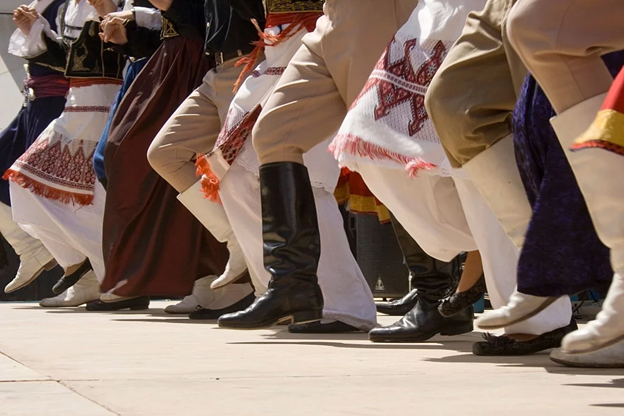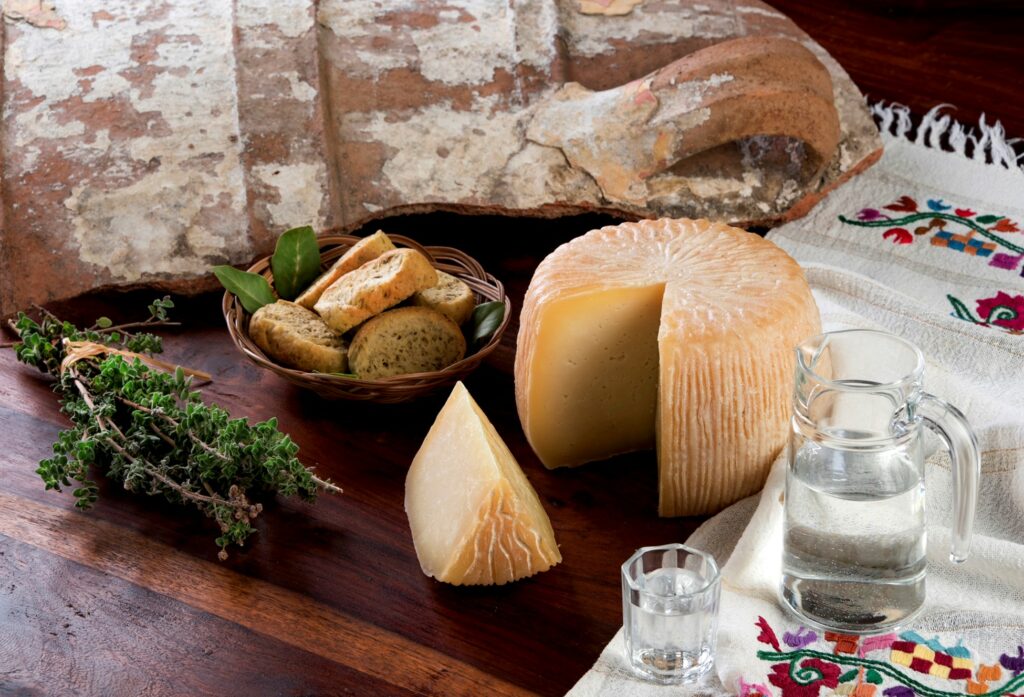
Experience the Unmatched Warmth of Cretan Hospitality
The hospitality of Crete is as remarkable as its stunning landscapes: generous, grand, and deeply welcoming. Cretan families take immense pleasure in sharing the island’s unique delights, from the delicious dakos salad to the ever-flowing raki, and the mesmerizing mantinades—poetic verses often played alongside the Cretan lyre or lute. Elderly islanders eagerly share their rich memories of Crete’s vibrant, though often tumultuous, history, recounting tales of family feuds and heartfelt vendettas. They also narrate stories of profound loves and enduring friendships, reflecting the pride and close-knit nature of this family-centered community.
Traditional Music and Dance
Music and dance are integral to Cretan culture, often seen at festivals, weddings, and social gatherings. The island’s traditional music is characterized by the use of the lyra, a three-stringed fiddle, and the laouto, a type of lute. Cretan dances, such as the pentozali and sousta, are lively and often involve intricate footwork. Participating in or simply watching these dances provides insight into the island’s rich cultural tapestry.
Religious Practices
Religion plays a significant role in Cretan life, with the majority of the population adhering to the Greek Orthodox faith. Church attendance, religious festivals, and name days (celebrations of the saint after whom a person is named) are important aspects of social and spiritual life. Visitors are welcome to attend church services, but it’s important to dress modestly and behave respectfully in religious settings.
Cretan Cuisine
Cretan cuisine is a cornerstone of the island’s culture, known for its simplicity, freshness, and use of local ingredients. Olive oil, herbs, fresh vegetables, and seafood are staples of the Cretan diet. Meals are often communal and can last for several hours, reflecting the importance of food and family in Cretan life. When dining with locals, it’s polite to try all the dishes offered and compliment the host on the food.

Social Etiquette
Understanding social etiquette is key to blending in with the locals. Greetings typically involve a warm handshake or, among friends and family, a kiss on both cheeks. It’s customary to address people by their titles and last names until a closer relationship is established. Punctuality is valued, but there is also a relaxed attitude towards time, especially in social settings.
Celebrations and Festivals
Cretans love to celebrate, and the island’s calendar is filled with festivals and events that showcase its traditions. Easter is the most significant religious holiday, marked by elaborate church services, feasts, and communal gatherings. Other important festivals include the Carnival (Apokries) and the Feast of the Dormition of the Virgin Mary in August. Participating in these events offers a glimpse into the communal spirit and joy of Cretan life.
Respect for Nature
Cretans have a deep respect for nature and the land that sustains them. Agriculture remains a vital part of the island’s economy, and traditional farming practices are still widely used. Visitors should show respect for the natural environment by not littering, supporting local produce, and appreciating the island’s natural beauty.
Conclusion
Cretan culture is a rich tapestry woven from ancient traditions, deep-rooted customs, and a strong sense of community. By understanding and respecting these local traditions and etiquette, visitors can gain a deeper appreciation for the island and its people. Whether you’re enjoying a meal with a local family, participating in a traditional dance, or simply soaking in the island’s natural beauty, embracing Cretan culture will undoubtedly enrich your experience on this enchanting island.





